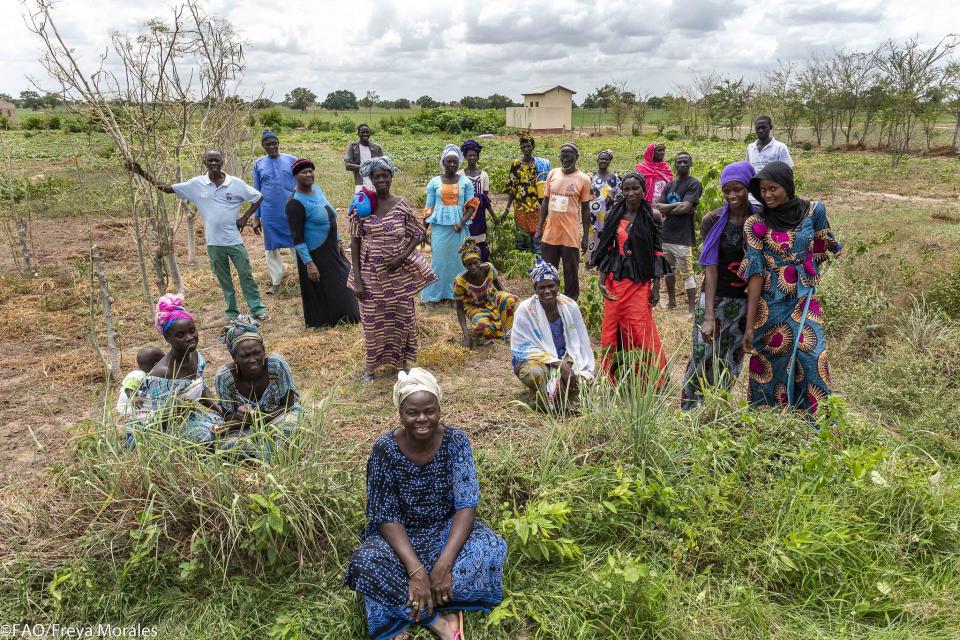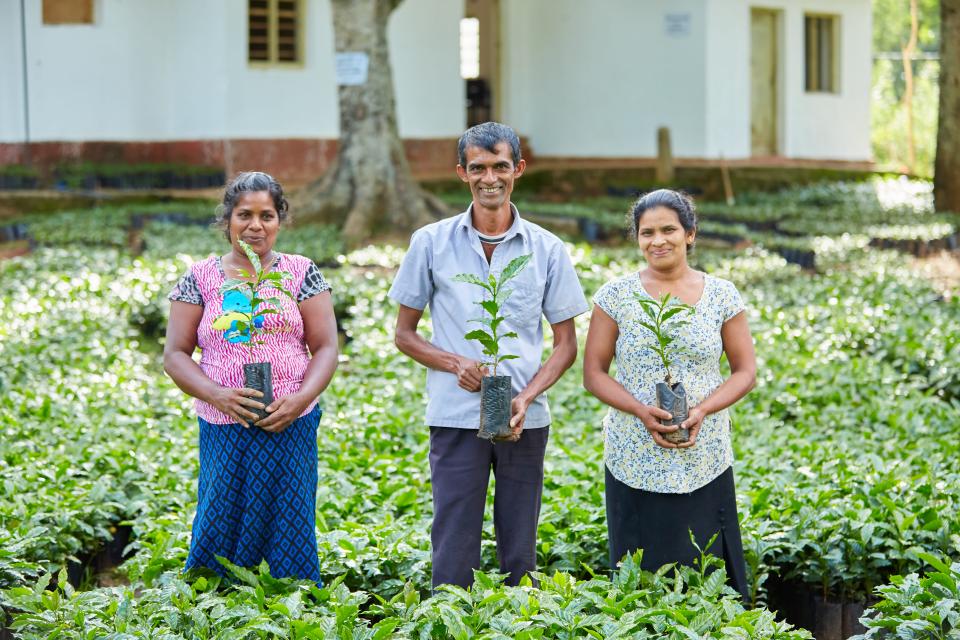The private sector could play a much bigger role in promoting gender-responsive climate-smart agriculture
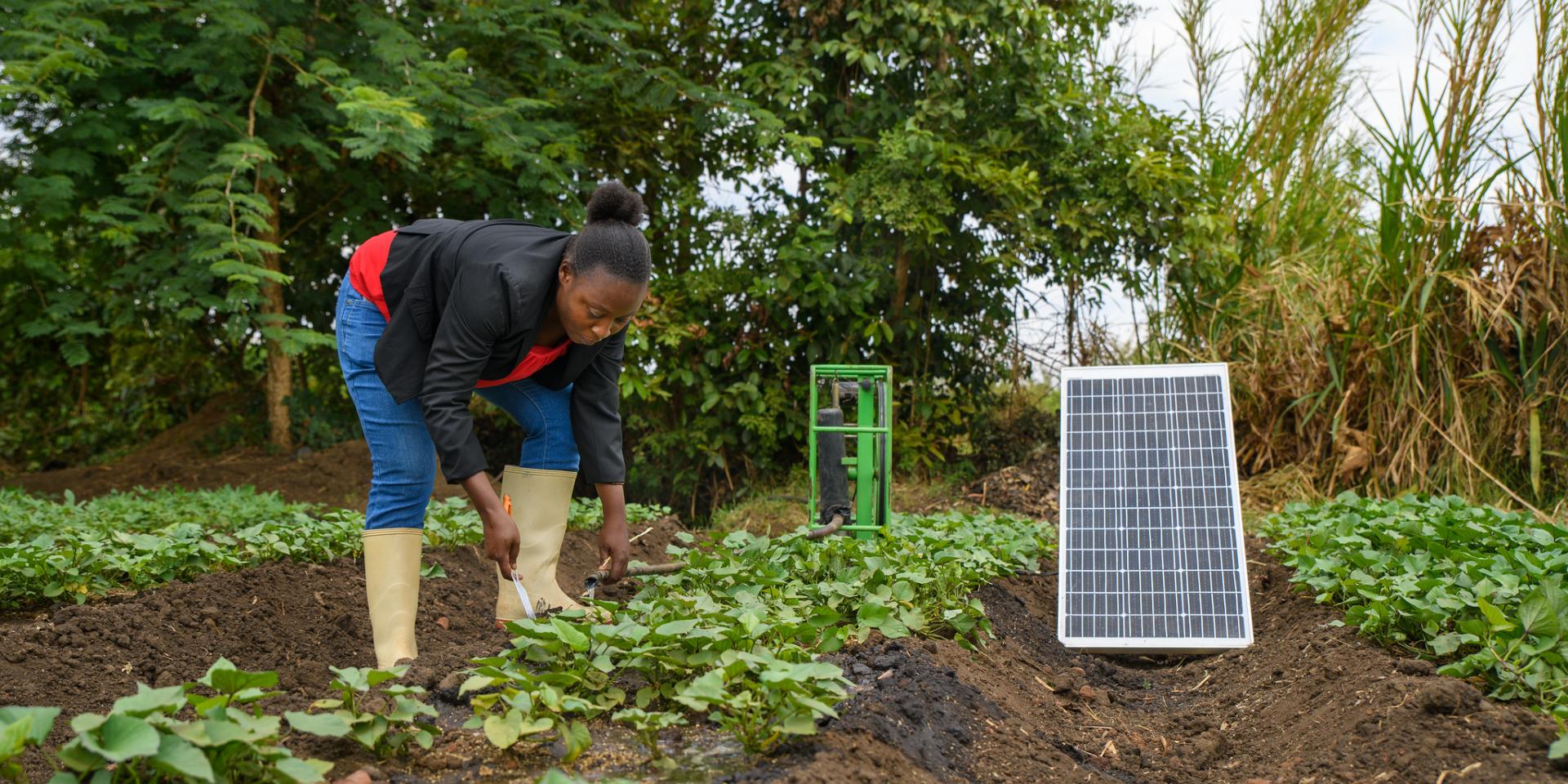 Photo: Emmanuel Museruka/CIP.
Photo: Emmanuel Museruka/CIP.
Key Messages
- The private sector can significantly boost women’s engagement in climate-smart agriculture by providing gender-responsive essential inputs, services and products across the agricultural value chain.
- The private sector’s engagement in promoting gender-responsive climate-smart agriculture has largely been short-term and not integrated into core strategies and operations.
- Identifying and overcoming barriers to private-sector engagement with gender-responsive climate-smart agriculture interventions can increase profitability, reduce gender inequality, and promote the goals of climate-smart agriculture (productivity, adaptation, mitigation).
The compelling business case for empowering women in CSA interventions
The private sector, defined as companies operating for profit within agri-food systems, holds significant potential to advance climate-smart agriculture (CSA). Similarly, gender equality and women’s empowerment are essential for effectively adopting CSA in agri-food systems. The private sector can also scale up CSA initiatives and offer services, products, and inputs where government capacity is constrained.
Using the PRISMA methodology, we analyzed 74 journal articles and gray literature to establish existing evidence, gaps and trends in the private sector’s role in gender-responsive CSA.
Our (forthcoming) research established that the private sector’s involvement in providing finance, productivity-enhancing inputs, technology, agro-climatic information, extension services, and CSA research is crucial.
The available evidence supports a compelling business case for empowering women in CSA interventions: gender equality is critical to achieving business success. Empowering women increases product quality, stabilizes supply chains, reduces post-harvest losses, expands the customer base, and protects brand reputation.
However, the review also reveals that the private sector may not be fully aware of this potential, leading to limited efforts to incorporate women’s empowerment into their CSA interventions. As a result, gender equality so far remains a short-term commitment tied to corporate social responsibility rather than a long-term business strategy.
The private sector can promote gender equality in their climate-smart agriculture interventions
Our review confirms that efforts by the private sector to engage women in their CSA interventions are minimal and short-term. Without an explicit focus on women’s empowerment in CSA interventions, there is a risk of providing counterproductive measures and reproducing existing gender inequalities.
Three main themes emerge for why the private sector is not engaging in gender-responsive CSA interventions and opportunities to improve uptake, which we explore next.
Make the business case more explicit to the private sector
Creating awareness about the business case: Private entities are primarily driven by economic outcomes such as profitability, risk reduction, and the security of their supply chains and brand reputations. Therefore, their CSA interventions are also orientated around these outcomes.
To improve engagement with gender equality in CSA interventions, it is crucial to make the business case more explicit to the private sector and mainstream gender equality in companies’ core operations and strategies through:
- identifying best practices to help private entities determine interventions they can replicate or scale up
- gaining organization-wide buy-in from senior leadership on gender-responsive strategies and actively promoting them as a critical priority with dedicated personnel and budgets
- training staff on the rationale for gender-responsive CSA, integrating gender metrics into performance measurements and providing incentives for driving meaningful change
- investing in gender-responsive interventions and generating sex-disaggregated data for investment decision-making.
Reveal how private sector operations impact or support women’s roles
(Mis)-Aligned value chain stakeholders: The fragmented agricultural value chain hinders the visibility of women’s contributions and their specific needs. This leads to a weak understanding of women’s role in the value chains and how private entities’ operations impact or support them.
Horizontal and vertical alignment among all CSA value chain actors can help to enhance women’s visibility and establish targeted interventions for their needs . Partnerships with women’s organizations, civil society organizations, governments and research institutions can improve stakeholder alignment and foster collaborative actions for gender equality.
Provide gender-responsive services tailored to women farmers
Provide gender-sensitive services: Evidence shows that private sector actors have limited interactions with women farmers due to social-cultural barriers that restrict women’s access and control over resources, hinder their mobility and limit their decision-making.
To address this limited interaction, private entities can provide gender-responsive financial, technological, agro-climatic information and extension services tailored to women farmers. Some good practices we identified include:
- Finances enable farmers to purchase inputs and technologies to adopt CSA. Although few financial entities provide credit to women, we identified innovative financing solutions targeted at women farmers. Organizations like Lady Agri, MEDA, and the Rallying Cry do not require women to provide assets as collateral to access loans.
- Innovative business models can improve women farmers’ access to early maturing, climate and stress-resistant, and high-yielding varieties. Approaches such as gender-responsive distribution channels, packing seeds in small packets and using images on packaging for better comprehension consider women farmers’ needs, affordability, literacy and mobility constraints.
- Gender-responsive design and technology implementation can enhance women’s adoption of CSA interventions. Claro Ltd’s lightweight solar panels have been adopted en masse by women farmers because they are designed to be carried as a backpack. These solar panels are used to pump water to irrigate crops, eliminate operational costs and lower emissions from reduced diesel consumption.
- By providing climate and agricultural information through gender-responsive channels that consider women’s literacy levels and use, for example vernacular radio programs, can increase the opportunities for uptake of CSA practices. Advisory services and training should be tailored to women’s needs, availability and literacy.
- Supporting women-led enterprises by earmarking investments, offering business incubation, mentorship programs, post-harvest training and promoting gender-inclusive procurement policies to ensure fair prices for women’s produce.
Gaps in evidence and future research priorities
- Most of the research examining the private sector’s role in enhancing women’s engagement in CSA is generated by public research institutions rather than private entities. There is a need to close that notable research gap by private entities. Partnering with research organizations to generate and analyze data may enhance private entities’ research capabilities and be a way to capitalize on the data generated by the private sector and perhaps reveal opportunities that would otherwise go unnoticed.
- There is limited literature on the engagement of small, informal private entities that reportedly interact closely with women farmers, such as local agro-input traders, food vendors and motorcycle transporters, compared to large-scale entities in the formal sector.
- More intersectional research on different categories of marginalized groups is needed.
- Most research focuses on the production node of the CSA value chain; more research on other nodes such as aggregation, processing and distribution would help to provide a holistic and more nuanced understanding of women’s engagement in the value chain.
- The reviewed literature was predominantly from sub-Saharan Africa (52.5 percent) and Asia (24.5 percent). More research is needed in other parts of the developing world.
By addressing these barriers and implementing gender-responsive strategies, private sector actors can play a more active role in promoting gender equality in CSA interventions, ultimately contributing to improved profitability, reduced gender inequality and realizing the CSA goals of productivity, adaptation and mitigation.
##
Suggested citation:
Muneri, Eunice. 2023. The private sector could play a much bigger role in promoting gender-responsive climate-smart agriculture. Nairobi, Kenya: CGIAR GENDER Impact Platform.
References
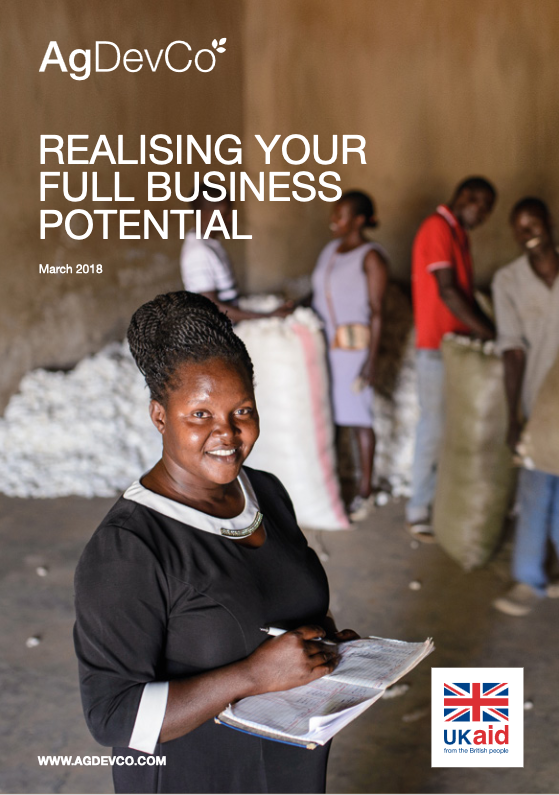
How to engage women farmers more effectively in the value chain? Hear from four industry practitioners: Realising your full business potential
AgDevCo. 2018. “How to engage women farmers more effectively in the value chain? Hear from four industry practitioners: Realising your full business potential.” https://www.agdevco.com/site/assets/files/1459/agdevco_gender_flyer_aw_digital.pdf.
Private Sector Consultation on Climate Smart Agriculture: The Feed the Future Learning Community for Supply Chain Resilience
CCAFS. 2018. Private Sector Consultation on Climate Smart Agriculture: The Feed the Future Learning Community for Supply Chain Resilience. CCAFS report. CGIAR Research Program on Climate Change, Agriculture and Food Security (CCAFS). https://hdl.handle.net/10568/93346.
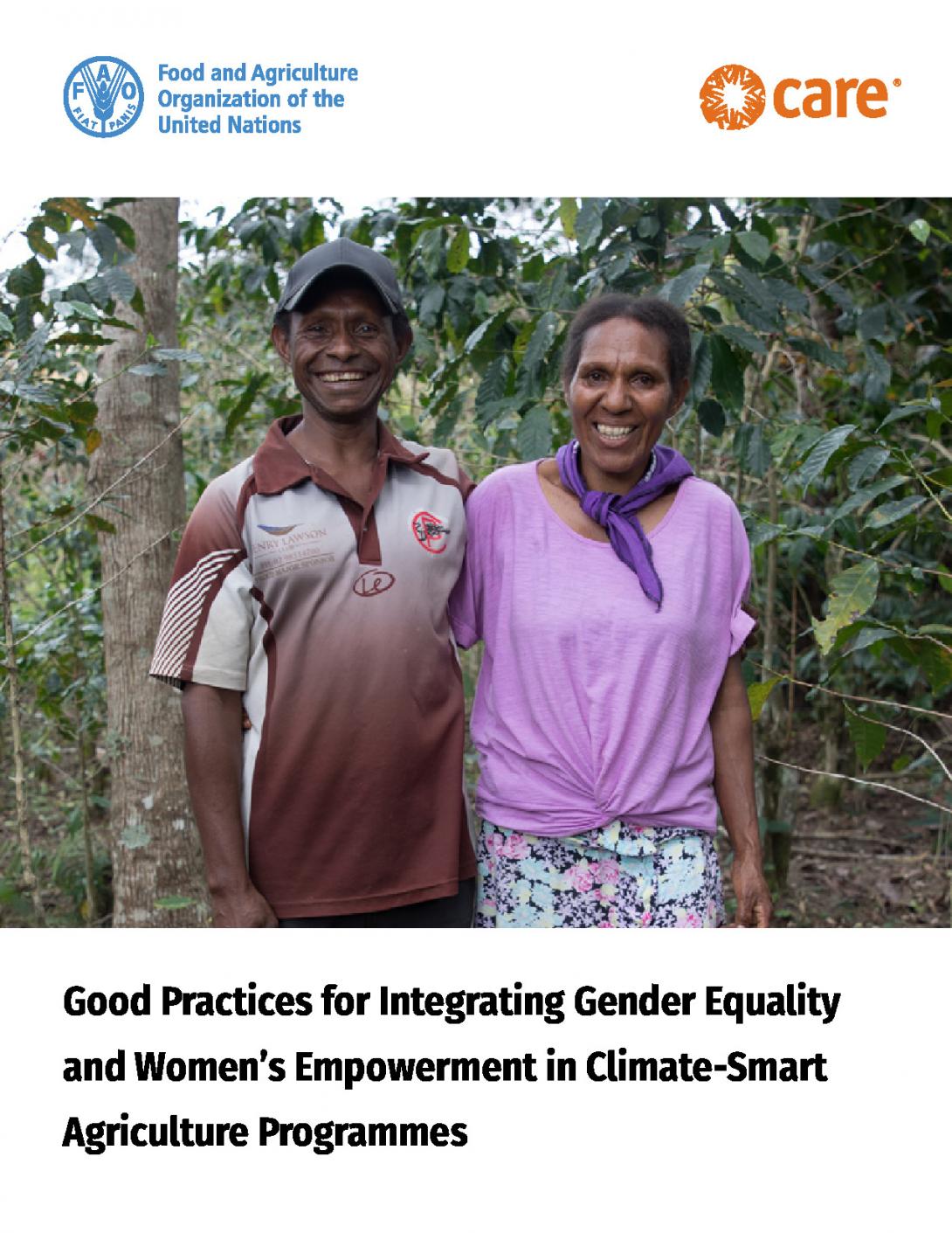
Good Practices for Integrating Gender Equality and Women’s Empowerment in Climate-Smart Agriculture Programmes

Potential of climate-smart agriculture in reducing women farmers’ drudgery in high climatic risk areas
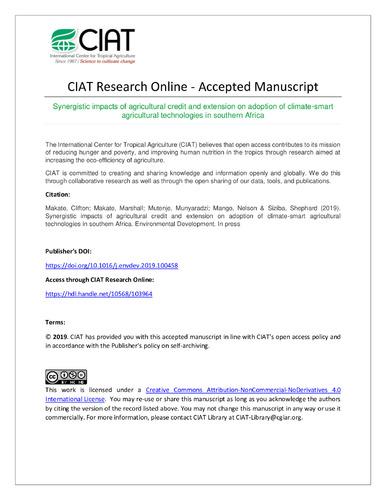
Synergistic impacts of agricultural credit and extension on adoption of climate-smart agricultural technologies in southern Africa
A Long Way toward Climate Smart Agriculture: The Importance of Addressing Gender Inequity in the Agricultural Sector of Guatemala
Mosso, C., Pons, D. and Beza-Beza, C. 2022. “A Long Way toward Climate Smart Agriculture: The Importance of Addressing Gender Inequity in the Agricultural Sector of Guatemala.” Land, 11(8), 1268. https://doi.org/10.3390/land11081268
Private Sector Actions to Enable Climate-Smart Agriculture in Small-Scale Farming in Tanzania
Quail, S., Onyango, L., Recha, J., Kinyangi, J. 2016. Private Sector Actions to Enable Climate-Smart Agriculture in Small-Scale Farming in Tanzania. In: Lal, R., Kraybill, D., Hansen, D., Singh, B., Mosogoya, T., Eik, L. (eds) Climate Change and Multi-Dimensional Sustainability in African Agriculture. Springer, Cham. https://doi.org/10.1007/978-3-319-41238-2_28
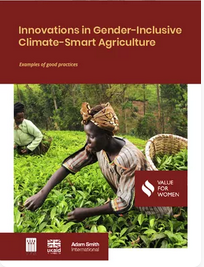
Innovations in Gender-Inclusive Climate-Smart Agriculture
Value for women. 2018. “Innovations in gender-inclusive climate-smart agriculture: Examples of good practices.” https://www.v4w.org/resources/innovations-in-gender-inclusive-climate-smart-agriculture.
